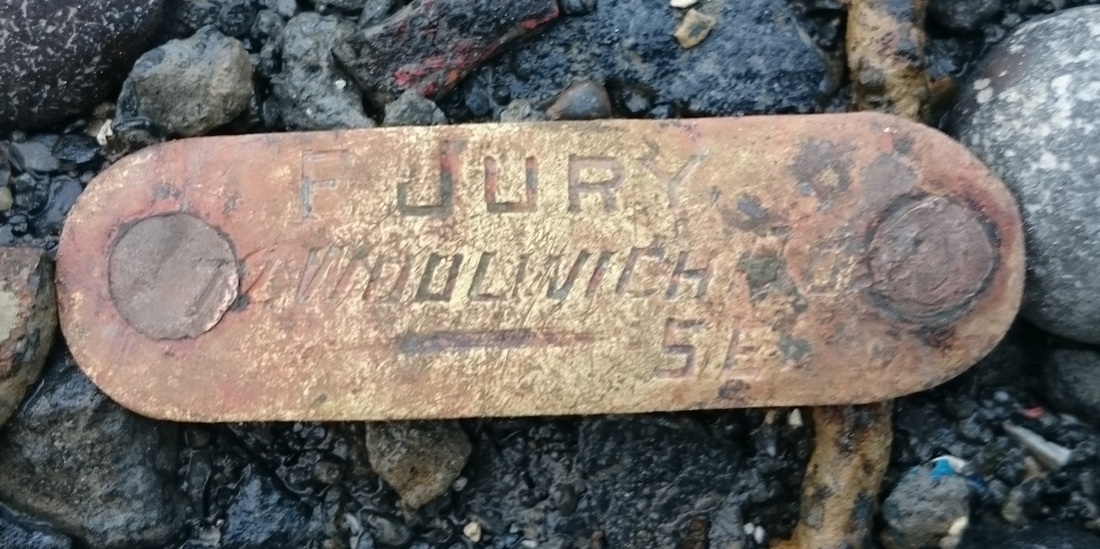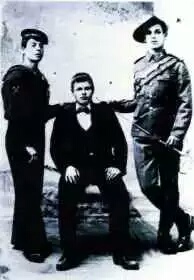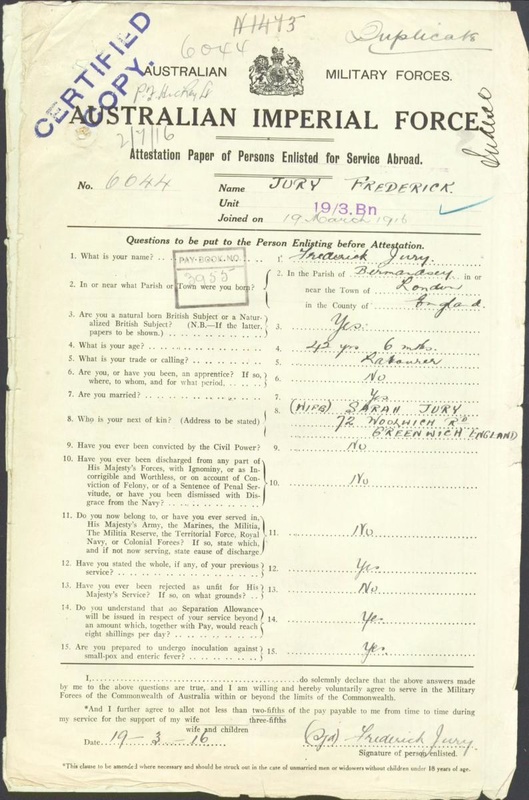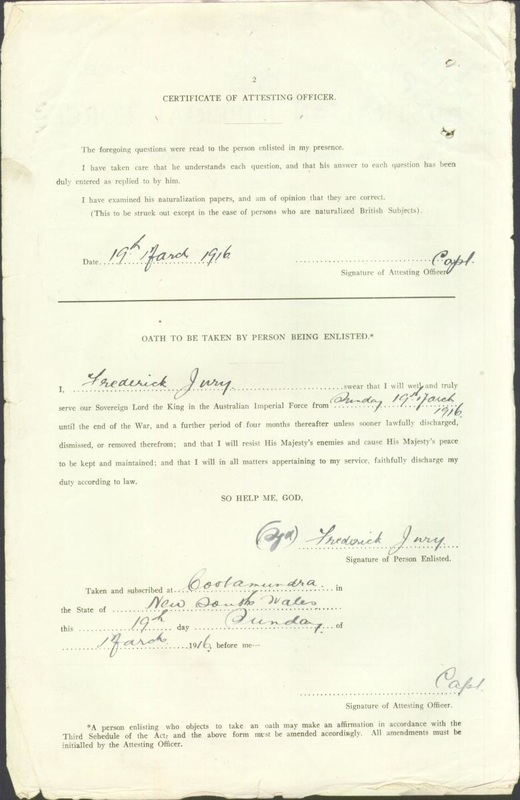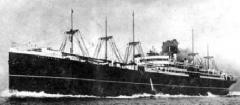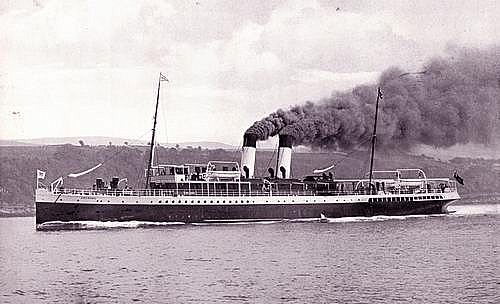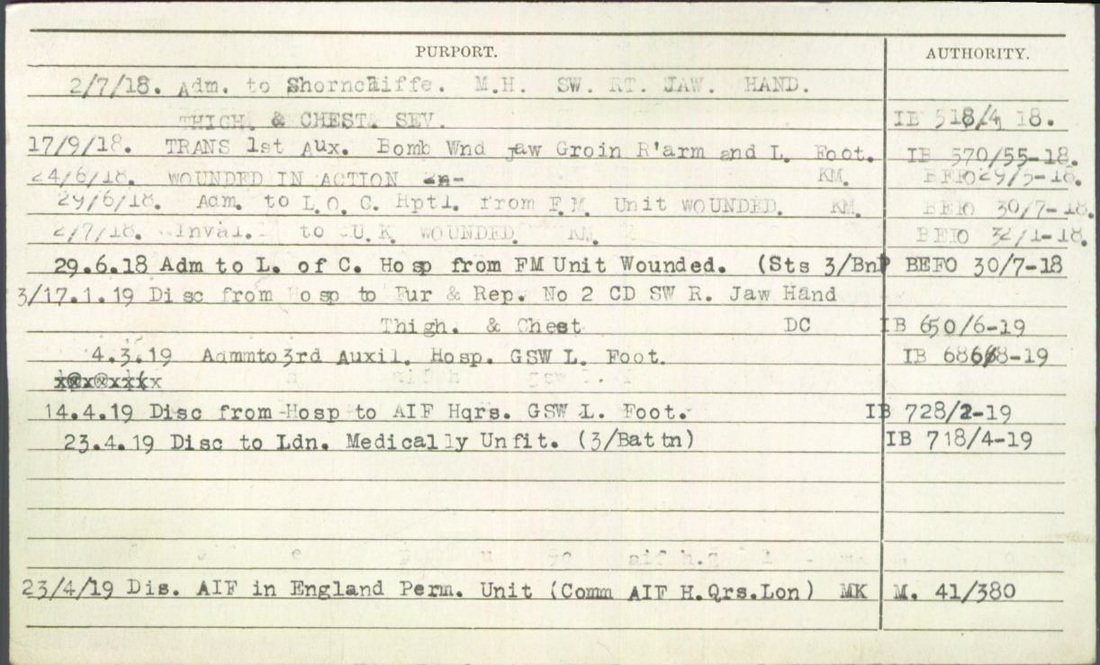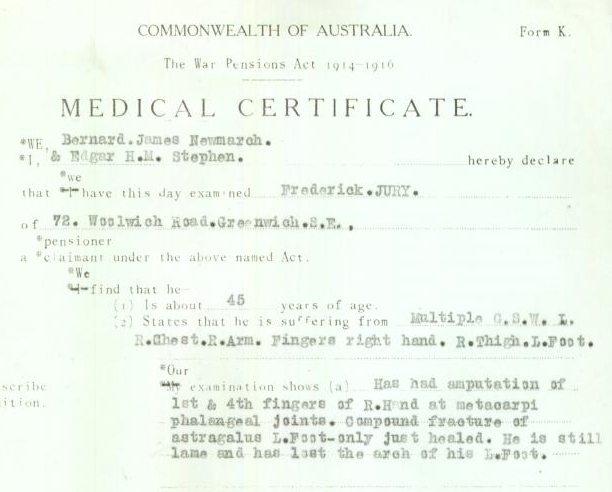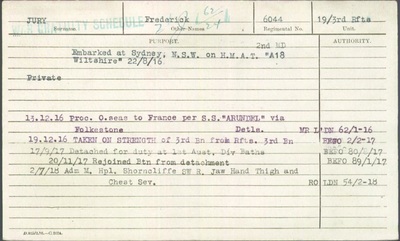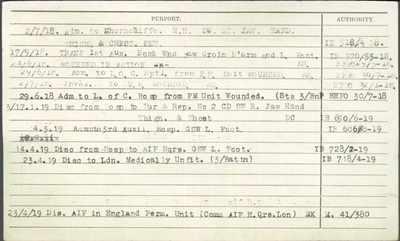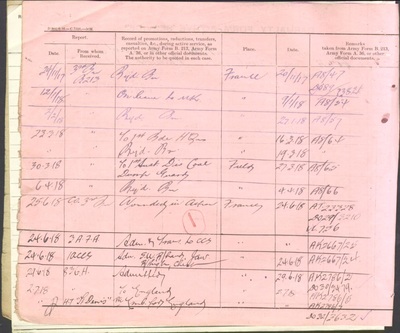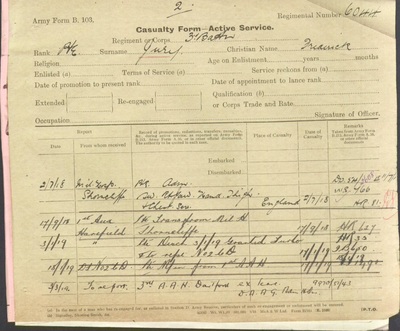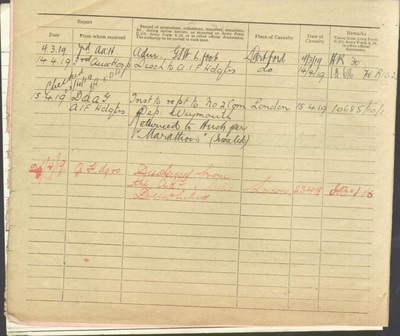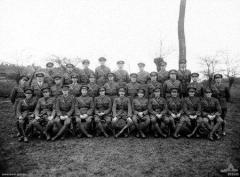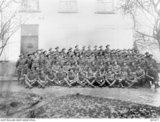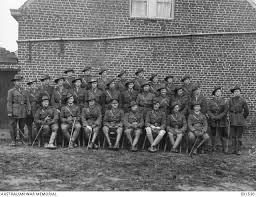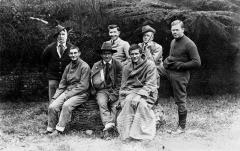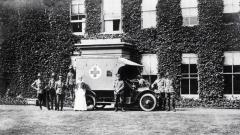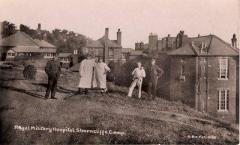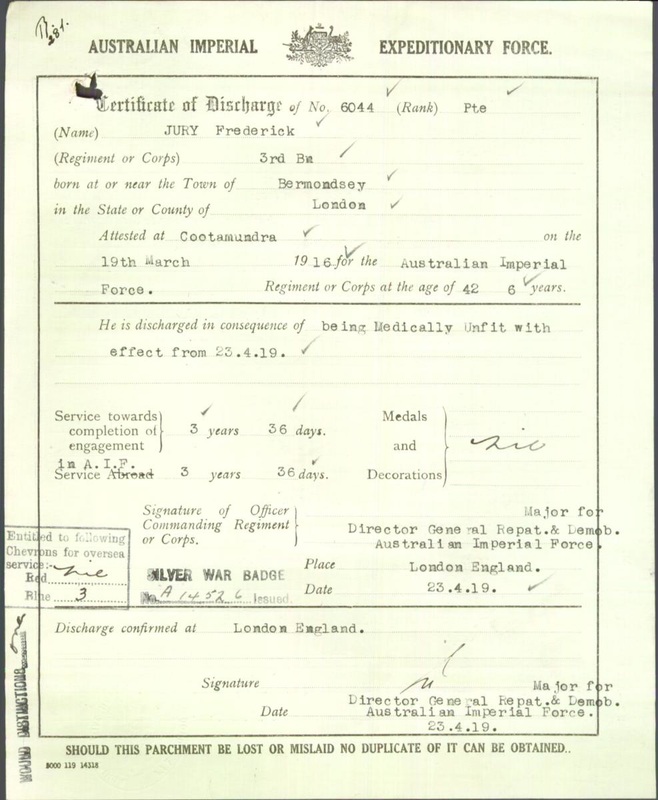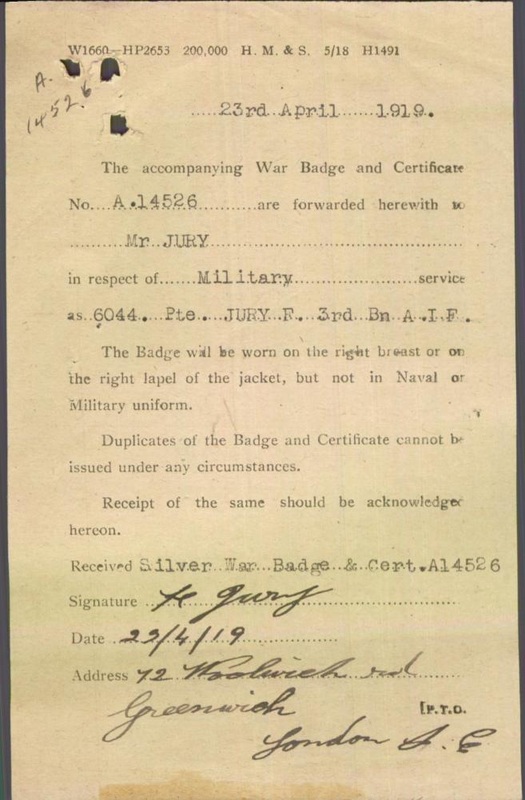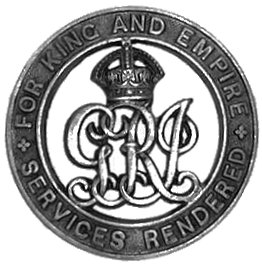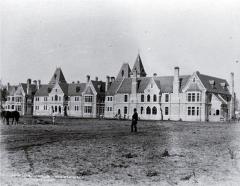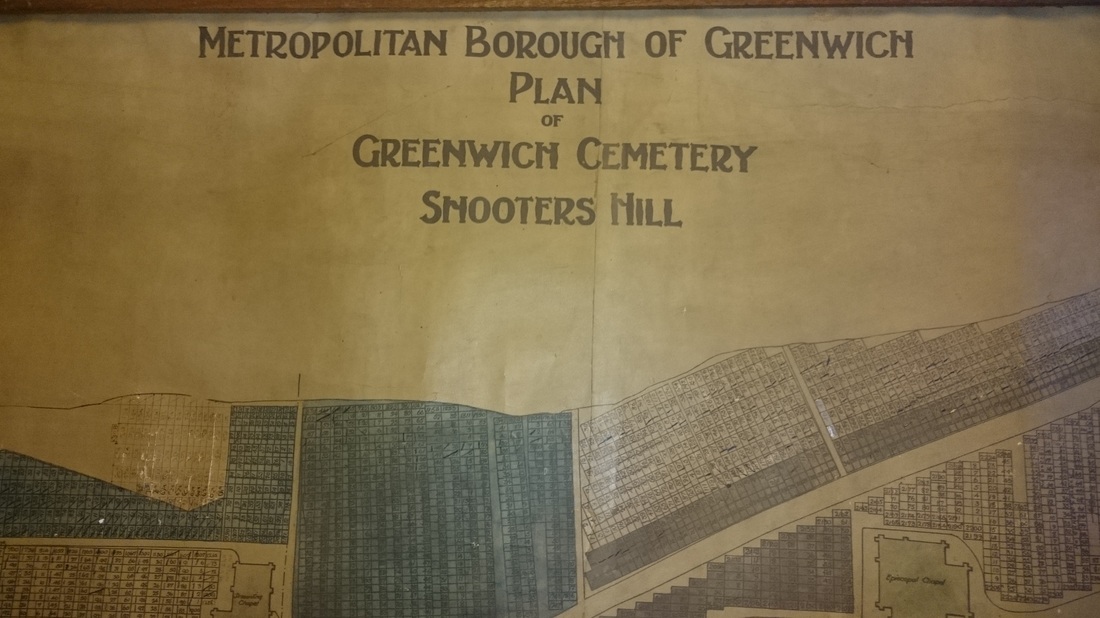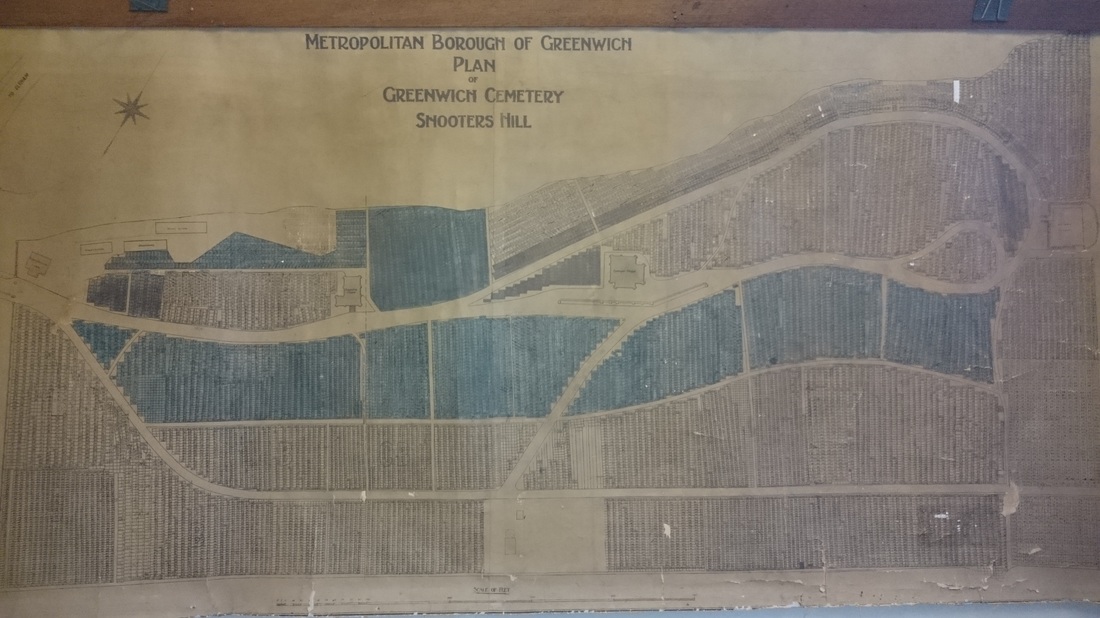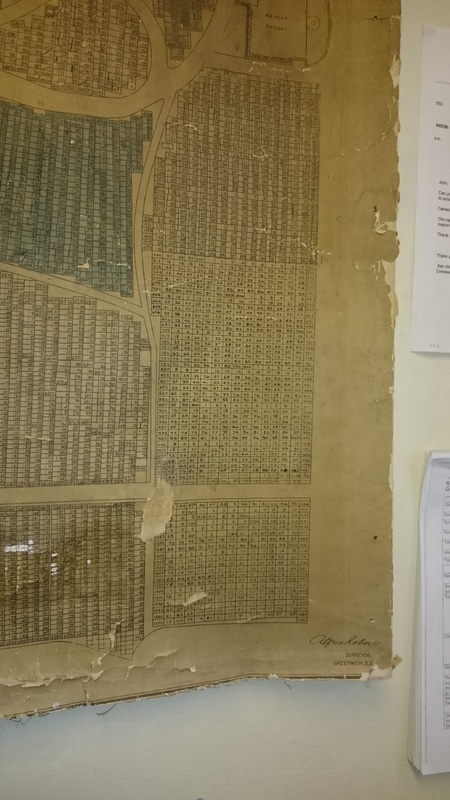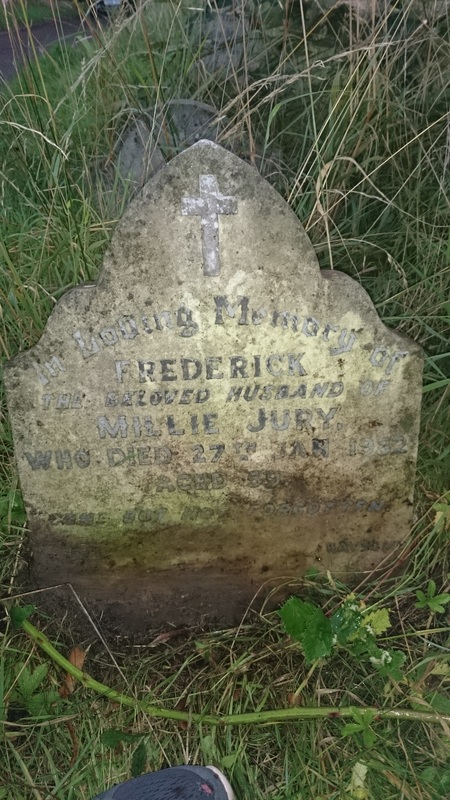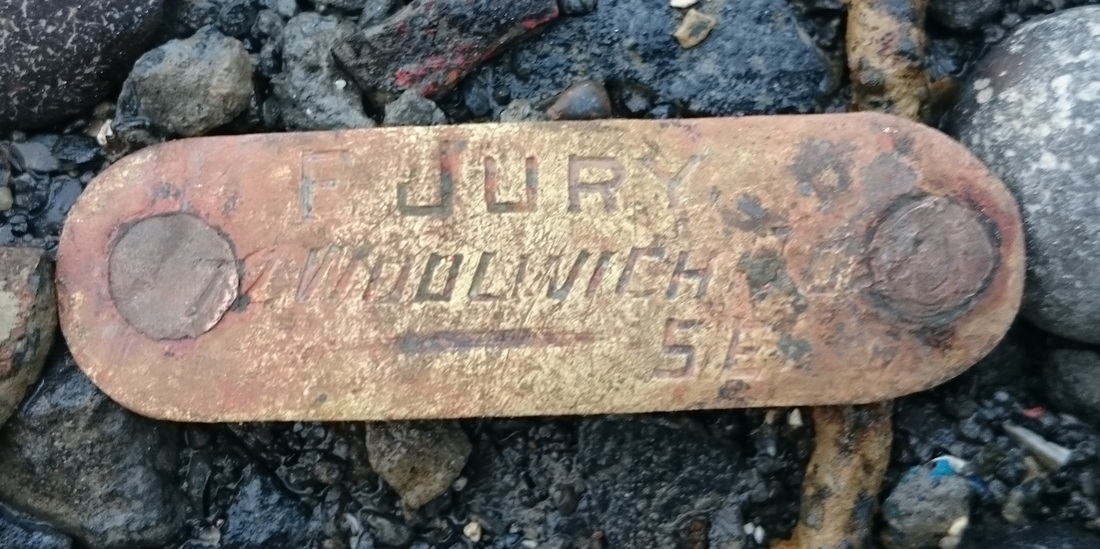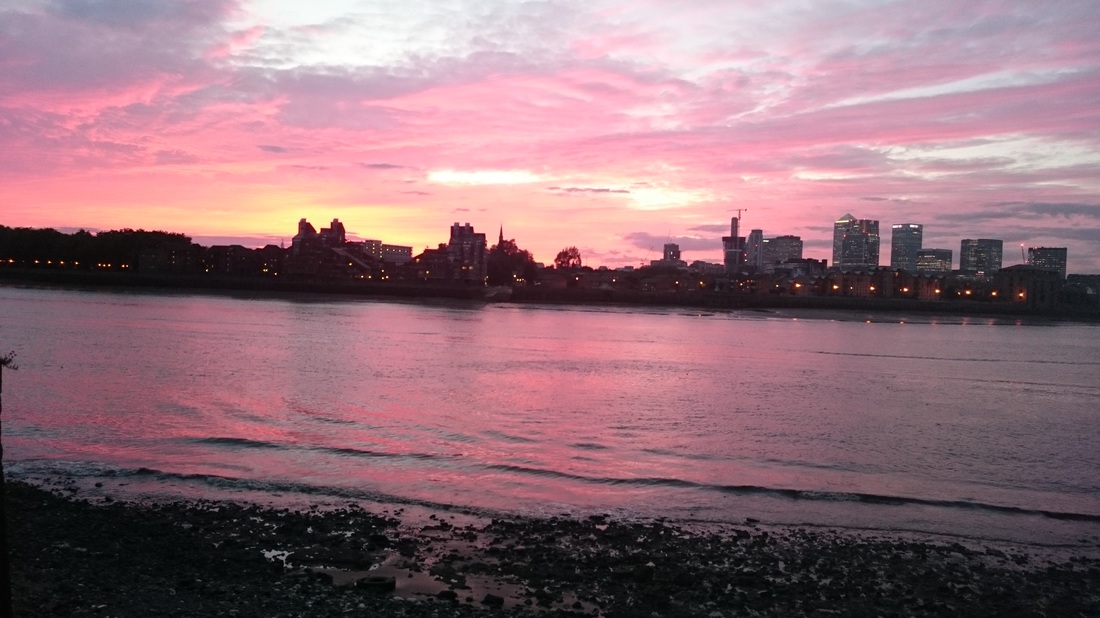On 22nd August 2016, it will be exactly 100 years since Frederick Jury (Private no. 6044, 3rd infantry Battalion, 19th Reinforcement, in the Australian Imperial Forces) embarked from Australia on the ship HMAT A18 Wiltshire from Sydney to travel to France via Folkestone, to fight in the First World War.
How did the story of Frederick Jury come to light? A simple Thames mudlarking find last week one evening after work in Greenwich, London, on Thursday 27th August 2015. A small, piece of metal s0 insignificant I almost passed it by as a piece of shrapnel, but then I noticed through the mud and drizzly rain, an engraved name, “F. Jury", and a faded address. I popped it in my bag for closer examination later that evening. Perhaps it was a shop in Woolwich I thought. On returning home, I cleaned it off and the engraving was revealed to be "F. Jury, 72 Woolwich Road, SE" The SE would stand for South East London. 72 Woolwich Road is in Greenwich, SE10.
Occasionally, a seemingly innocuous find in the River Thames such as this, can be compared to opening up a glorious story book. It is no secret that it is the hidden stories behind the items which I find washed out by the Thames tide, which fuel my passion for mudlarking. With the help of a lot of people on twitter, (after I posted a picture of F. Jury's brass luggage tag last Thursday 27th August), I was to find that this small, muddy object was to conjure up a whole family of people from the past, with their lives opening up before me like an intriguing novel. These people and their very real dilemmas have lain forgotten for years (especially in this case, as there seems to be no living close relatives). So here is a brief outline of the very worthy life of Frederick Jury, the owner of the luggage tag, discovered in the Thames mud on 27th August 2015 at Enderby Wharf Greenwich.
I have had some wonderful help with the research about Fred and his family, and I would not have been able to write this blog about him without the invaluable help of a number of people, namely:
Deborah O' Boyle @dimblydeb
Julia Davis @familyhist2DAY [email protected]
Clay Harris @mudlarklives
John Layt @odysseus_nz www.layt.net/john
Rob Powell of @greenwichcouk
@catford_cat
@hp88
@London_Mush
Jason - Gravedigger at Greenwich Cemetery
The National Archives of Australia http://recordsearch.naa.gov.au
And I bet I forgot someone so please let me know if I did forget you!!
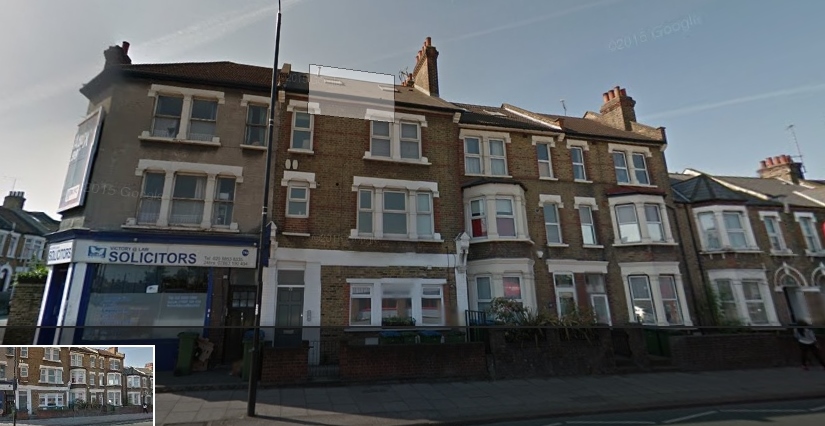 72 Woolwich Road, Greenwich, where Fred Jury lived with his wife Sarah from 1904 at least
72 Woolwich Road, Greenwich, where Fred Jury lived with his wife Sarah from 1904 at least Here below, is Frederick Jury's final resting place. I was a little concerned when I read "Beloved Husband of Millie Jury" (was this another wife we had not heard of?), but then I was reassured to hear that this was almost certainly a pet name for Sarah Amelia Elizabeth Frances (a shortened version of Amelia). In fact, Sarah's grave is also in Greenwich Cemetery (Zone C) and I plan to seek her in the near future too.
Jason the grave digger, my friend & myself spent a few moments next to Fred's grave. It seemed sort of sad that after such an intriguing life, we had to search in the overgrown brambles and grass for his headstone, but Jason, who must be used to such ponderings over the years, said that it really isn't about the material things we leave behind, or the state of the gravestone. It's the legacy we leave, the places we visit, the people we touched in our lives.
What is this fascination with a stranger from Woolwich who died over 70 years ago? I’ve had to ask myself that. What leads us to take a name on a tag and delve deeper into its history? Maybe it is because none of us want to be forgotten. None of us want to be just a name on a luggage tag that ends up in the River. We want to leave a footprint in the world : for our lives to mean something. That’s how I see it anyway. The good thing is, if you're reading this, you're still alive, and you can still be the author of your own story.
So that is the outline of Fred Jury’s life pulled together from the various databases and heritage sites that have information about him. Of course, what we can only imagine, are the real feelings, thoughts and emotions that Fred went through – decisions, considerations, worries, what made him laugh, what made him happy. Why he went to Australia. What he saw when he looked out from the decks of the HMAT Wiltshire. What his dreams were.
This brings to mind a quote from a book written by Douglas Kennedy "The Pursuit of Happiness", which I read last year. A quote which really spoke to me.
"And do you want to know something rather amusing? My past my choices - when I die, all that past will vanish with me. It's the most astonishing thing about getting old : discovering that all the pain, all the drama, is so completely transitory. You carry it with you. Then, one day, you're gone, and nobody knows about the narrative that was your life. Unless you've told it to somebody or written it down."
Douglas Kennedy - The Pursuit of Happiness
It’s so true.
So I put this to you. If someone found your luggage tag in the Thames in 100 years time, what would they write about you.
What is your story?
Gone but by no means forgotten
